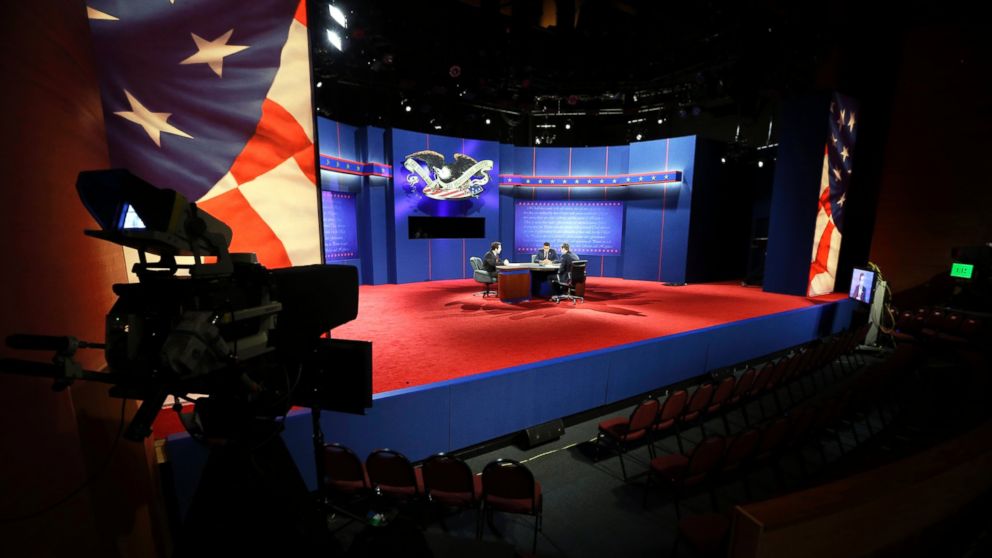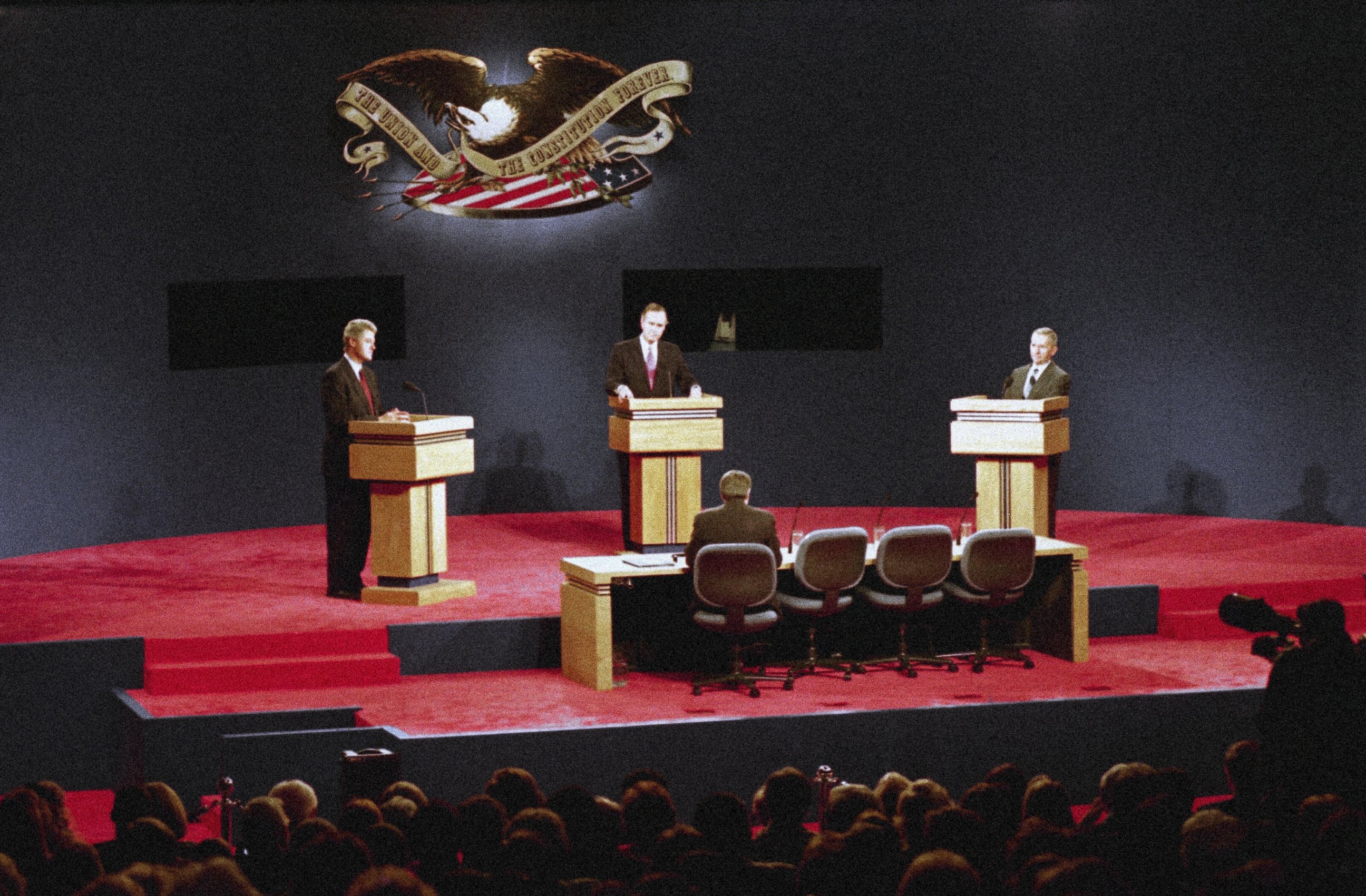Presidential Debates: Introducing the Group Trying to Change the Rules
Inside the effort to add a third candidate to 2016's presidential debates.

— -- Much like America’s political system, presidential debates are dominated by the major parties and their candidates.
But a new “change the rule” lobbying campaign is underway to make it easier for third party candidates to join the debates in 2016 by changing how they can qualify.
Republicans Slash Presidential Debate Schedule For 2016
10 Things America Wants in Its President in 2016
Former Sen. Jim Webb Eyes 2016
Since 1988, the Commission on Presidential Debates -- founded by the Republican and Democratic parties -- has organized presidential and vice presidential debates. According to the commission’s current rules, candidates must poll higher than 15 percent in numerous polls prior to the debates in order to appear.
Instead, the campaign proposes a ballot contest: A third party candidate would have to get access to ballots in enough states to reach 270 electoral votes, giving them a mathematical shot at the presidency.
If more than one candidate meets this threshold, whoever gathered the most signatures as part of the access process would participate in the fall debates – a crucial and highly visible platform.
While presidential candidates—417 were registered with the Federal Election Commission in 2012—aren’t obligated to participate in debates in order to run, the televised contests are crucial to candidate visibility.

“Without that kind of exposure, you’re not considered a credible candidate,” said Christine Todd-Whitman, the former Republican governor of New Jersey, who supports the initiative.
In 2012, Whitman was a supporter of Americans Elect, a failed multimillion-dollar initiative to cultivate a national support for a third-party candidate funded by New York investor Peter Ackerman, who is also funding the “Change the Rule” campaign.
“We weren’t able to field a candidate, and the inability to get on television is such a hurdle [to third party candidates],” she said.
Only one third party candidate–Ross Perot in 1992—has participated in debates with the two major party candidates since the CPD’s founding (which was also the last time a Bush faced a Clinton in a debate).
But the American political landscape has changed over the last 23 years. A 2014 Gallup survey found that 42 percent of Americans identify with neither party, but as political independents – a record high.
“It’s not my line, but the fastest-growing party in America is no party,” said former Connecticut Sen. Joe Lieberman, a supporter of the initiative who last ran for Senate in 2006 as an independent after losing the Democratic primary.
“I grew up in the two party system and believe it did a good job of coalescing minority groups of opinion,” he said. “But it’s ceased to do that. The parties have become increasingly homogenous.”
Lieberman added that along with speaking to independents, a third party candidate on the debate stage could also help shape the agenda, similar to how Perot made balancing the budget a focal point of the 1992 race.
A spokesperson for the CPD, which reviews its debate policy between election cycles, said that the ballot signatures idea has been considered in the past, and that a prior review concluded it was “not the same measure of strength of a campaign” as public support.
But one CPD board member, Dorothy Ridings, expects to discuss the initiative at the CPD’s April 1 hearing.
The issue at hand, Ridings said, is “wanting to make sure debates take place—you don’t want to have 27 people on stage—and making sure the American public gets to hear from the likely candidates.”
“There is no right and wrong policy,” she added.
An earlier version of this story said that Ross Perot was the only third party candidate to poll higher than 15% before participating in a presidential debate. Instead, he was the only third party candidate to participate in a major debate since the CPD's founding.